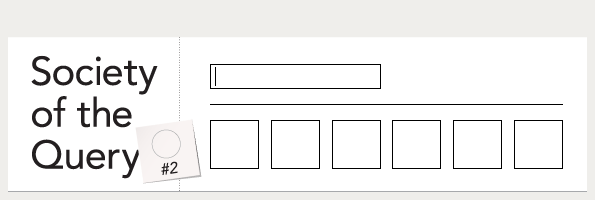 The Islamic search engine I’m Halal, created by Reza Sardeha, a 20-year-old Iranian that studies business in Amsterdam, has entered the Dutch news this weekend as critical questions were asked in parliament about the use of the search engine in Dutch schools. The issue has been inspired by a recent article in the Dutch gay magazine GayKrant, which emphasizes the fact that the engine qualifies search terms such as gay and gay marriage as possibly ‘haram’ (unclean or forbidden). Haram is the opposite of ‘halal’, an Arabic adjective meaning ‘something that is permissible in Islam’ and the term by which the search engine derived its name. Since its conception in September 2009, the search engine has been discussed on international blogs and news media, the focal point of most of the debate being a supposed Islamization of the Web.
The Islamic search engine I’m Halal, created by Reza Sardeha, a 20-year-old Iranian that studies business in Amsterdam, has entered the Dutch news this weekend as critical questions were asked in parliament about the use of the search engine in Dutch schools. The issue has been inspired by a recent article in the Dutch gay magazine GayKrant, which emphasizes the fact that the engine qualifies search terms such as gay and gay marriage as possibly ‘haram’ (unclean or forbidden). Haram is the opposite of ‘halal’, an Arabic adjective meaning ‘something that is permissible in Islam’ and the term by which the search engine derived its name. Since its conception in September 2009, the search engine has been discussed on international blogs and news media, the focal point of most of the debate being a supposed Islamization of the Web.
I’m Halal has entered the search engine market two months ago with the stated goal to provide the increasingly online Muslim community with a responsible and safe environment to continue their online activities. Using the search engine will prevent Muslim users from accidentally encountering less wholesome and explicit Internet content that may be cause for religious concerns. In an interview on thenextweb.com, CEO Sardeha notes that the need to start I’m Halal was also born from the fact that even the highest Google Safe Search settings still did not provide “clean and safe enough” results. As opposed to Google, I’m Halal focuses first and foremost on its result filtering system, which is programmed to perform according to Muslim religious law. Searching the engine for non-halal keywords results in a warning message that will indicate the ‘haram’ level of your inquiry on a three-level scale. On this procedure, the ImHalal.com Blog states:
When you get a Haram warning of 1 out of 3 this means that the results fetched by ImHalal.com could potentially contain explicit content but if you think the results will be clean you still can continue your search. When you get a Haram warning of 2 out of 3 this means that the results fetched by ImHalal.com probably will contain explicit content but if your really sure your search will return clean results you can continue your search. Last but most certainly not least when you get a Haram warning of 3 out of 3 this means that the search results will most certainly contain sexual explicit content and so you can’t continue your search and you are advised to try another search inquiry.

A query for gay reaches a haram level of 2 out of 3, indicating that the search results may well be haram. However, clicking on the accompanying link will still provide you with the results of the query – the gay, lesbian, bisexual, and trans gender community Gay.com being the first hit. Sardeha notes that “besides explicit sexual content we don’t censor anything since we only filter content. After being warned by our system you are in charge to determine if you will continue your search or not. […] ImHalal.com is not a dictatorial search engine which believes in censorship, we want people to be able to continue their online search. And no political or religious censorship has been implemented or will be implemented in the future.”
I’m Halal is not the first search engine with a religious theme, as Cyrus Farivar points out in an article on Theworld.org. Besides a number of Christian and Jewish engines, there exists the “Islamic Google” filter and NaqaTube, an Islamically pure version of YouTube. While there is an obvious demand for these services and I’m Halal has attracted a large amount of visitors since its start-up, Farivar quotes several scholars that are skeptical about the Muslim community embracing the idea of a restrictive search engine. Helmi Noman for instance, a Yemeni researcher with the Berkman Center for Internet and Society at Harvard University, argues that the Internet in North Africa and the Middle East is already extremely restrictive. Authorities and governments impose forms of censorship upon users that go way beyond measures taken by I’m Halal and he deems it unlikely that they would think of adding another layer of filtering to the Web by using services like these.
In answer to the questions asked in parliament this weekend, Dutch Minister Ronald Plasterk states that the use of I’m Halal within the school system will not be prohibited. While the qualification of search terms such as gay as haram may be offensive and the filtering of search terms according to an orthodox Islamic perspective is less than desirable, the practice by I’m Halal does fall under the freedom of speech and the freedom of religion. Educational institutes, he concludes, should be free to determine which search engines to use in classes provided that the education offered is ‘open toward society as a whole and adheres to the diversity within it’.


